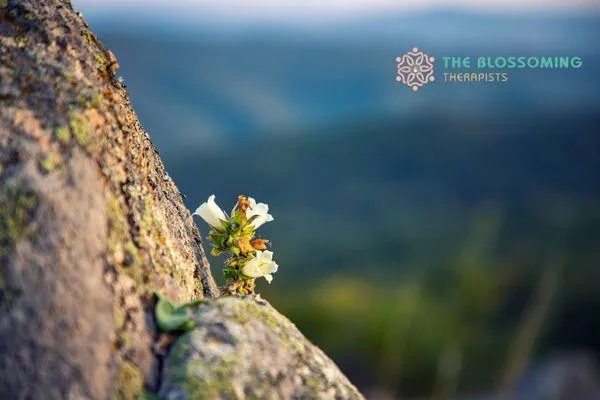
When My Toothache Became My Teacher: A Buddhist Psychologist's Reflection on Pain as Gateway
Pain has always been one of humanity's greatest teachers. But sometimes, the lesson comes through a rather mundane messenger - like a neglected tooth infection at 3 AM.
The 3 AM Wake-Up Call
You know that feeling when you have a major toothache, when the tooth is infected and the nerves are close to dying? That throbbing and heart-wrenching pain when you drink water? That 3 AM pain where you can't sleep but hold onto your jaw, waiting for the painkiller to kick in? I finally understood what my clients meant when they said, "I had to hit rock bottom before I could change."
The Price of Procrastination
As therapists, we often know what we should do, yet still struggle to prioritize our own care. I found myself in this familiar pattern - amongst all the different things I had to attend to, self-care slipped through my mind, especially when it didn't hurt and "didn't sound like a priority" when everything was going well. I was sick when one of my usual dental check-ups was due last year. I meant to reschedule that dentist appointment but continued to 'forget' and let it 'slip out of my mind.' It was deemed as 'less important' amongst the other things that I cared about.
When Pain Becomes Unbearable
It wasn't until the pain became unbearably real - a 14 out of 10! I had no choice but to quickly book an appointment. As the dentist did the ice test on the tooth, oh my goodness, the tears in my eyes were hard to fake! Yes, it all happened during my launch week! I relied on way too many painkillers to get through the week.
The dentist said I had to see an endodontist surgeon for root canal treatment and was put on a waitlist. The pain was so unbearable that I had to call multiple times to be put on the cancellation list. You know that crazy therapist mindset that I still learn to let go of! I rejected an appointment offered to me, realizing that I had a school visit scheduled during that time. Of course, I made that decision while on painkillers, thinking I could push through it. Immediately after the painkiller wore off, I regretted the decision and wished I had kept the appointment.
I finally had the consultation on Wednesday to see the endodontist, who advised me that the tooth was dead. No wonder I didn't feel the pain after the antibiotics. A sense of grief filled me as I realized that this poor tooth had gone through the dying process!
The Buddhist Perspective on Pain
I remember my dharma teacher once said, "Some sentient beings started learning Buddhism because of pain. It's a gateway for realization that we have to cultivate and practice to get out of the cycle of birth and death." Pain, once experienced and understood of its message, would be a profound gateway to transformation and liberation.
Clinical Wisdom: Pain as a Messenger
This wisdom resonates deeply in my therapy room, where I've witnessed this truth unfold countless times. Like Sarah*, who avoided addressing her anxiety until panic attacks forced her to stop. Or Michael*, who needed a burnout breakdown before he could break through his perfectionism. (*names changed)
In Buddhism, which aligns beautifully with modern therapeutic approaches like ACT, pain and suffering are seen as inevitable parts of being human. We experience birth, aging, sickness, and death - none of which we can escape. Everything in life experiences cycles of formation, change, and ending. This impermanent nature applies to both external circumstances and our internal experiences - our thoughts, feelings, and sensations.
The suffering often comes not from the pain itself, but from our resistance to it. When we refuse to accept what is and desperately want things to stay the same, we add layers of struggle to our original pain. In therapeutic terms, we might call this the difference between clean pain (the inevitable discomfort of being human) and dirty pain (the additional suffering we create through resistance).
Working With Pain as a Gateway
When pain arrives - whether physical or emotional - it often carries three invitations:
To pause and pay attention
To take necessary action
To transform our relationship with ourselves
The Wisdom of Listening
Just as my toothache finally pushed me to seek treatment, our emotional pain often signals us to make important changes. Perhaps it's the exhaustion that leads us to finally set boundaries, or the anxiety that guides us to seek support. As therapists, we're skilled at hearing others' whispers. The invitation is to bring that same attunement to ourselves, learning to listen before the whispers become screams.
In our clinical work, we witness daily how clients often arrive when their pain becomes unbearable - the relationship has broken down, the anxiety has peaked, the depression has deepened. Rather than seeing this as 'resistance' or 'waiting too long,' we can honor pain's role in their journey to our rooms. Their pain, like mine, became the gateway to transformation.
Now, when I notice tension in my body during therapy sessions, I bow to it differently. Just as my toothache became my teacher, our bodies hold wisdom waiting to be heard. Sometimes, what feels like unbearable pain might just be the doorway to our next evolution.
As you sit with clients this week, perhaps notice: Where do you feel their pain in your body? What wisdom might your own pain be offering? How can you honour both their and your journey through pain to transformation?
Remember, while pain can be a powerful teacher, we don't need to wait for it to become unbearable. Sometimes the wisest action is reaching out for help while the whispers are still gentle.
